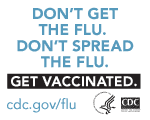CDC Partners
Are You Getting Enough Sleep?

Do you nod off at meetings? Doze at your desk? Become drowsy while driving?
You may be among the estimated 50-70 million Americans who do not get enough sleep. During a recent CDC-sponsored workshop on sleep, the overarching message was clear: Insufficient sleep may be hazardous to your health.
The one-day sleep workshop, sponsored by the Division of Adult and Community Health (DACH) and Emerging Investigations and Analytic Methods Branch (EIAMB), emphasized the importance of getting sufficient sleep on a regular basis. Presentations by DACH/EIAMB staff members indicated that many Americans fall short of the recommended 7-9 hours of sleep per night for adults.
Sleep Deficit: A Widespread Problem
Chronic sleep deprivation may not only decrease your energy level—and increase your crankiness—but can negatively impact your overall quality of life. Earlier this year, CDC released an MMWR study based on data from Delaware, Hawaii, New York, and Rhode Island, which indicated that 10 percent of adults reported not getting enough rest or sleep every day in the previous month.
The study, "Prevalence of Perceived Insufficient Rest or Sleep—Four States, 2006," featured in the February 29 issue of MMWR, analyzed data from CDC's Behavioral Risk Factor Surveillance System (BRFSS) telephone survey. The percentage of adults reporting inadequate rest or sleep ranged from 8 percent in Hawaii to 14 percent in Delaware.
The BRFSS data has known limitations, such as its use of self-reported data; responses based upon perception of insufficient rest or sleep, rather than actual hours of sleep per night; the subjective terms of "insufficient" and "rest"; and use of data not based on the entire United States.
Still, the four-state BRFSS data aligns with an additional CDC study using data from the National Health Interview Study (1985 to 2006), which showed an increased percentage in the number of adults who reported sleeping six hours or less. Several other studies, surveys, and reports, such as the 2005 National Sleep Foundation Poll and the 2006 Institute of Medicine report, "Sleep Disorders and Sleep Deprivation: An Unmet Public Health Problem," further indicate that insufficient sleep is widely prevalent throughout the United States.
How much sleep is really enough?
The amount of sleep we need varies by age. Most newborns and infants sleep the better part of the day (12-18 hours), hence the phrase "sleep like a baby." Toddlers and children under five need about 13 hours. Adolescents, who need even more sleep than adults, often receive less due to a full schedule that may include after-school activities, a heavy homework load, and late-night Internet use or TV watching.
According to the National Sleep Foundation
- Most adults need 7-9 hours of sleep each night to feel fully rested.
- School children aged 5-12 years require 9-11 hours.
- Adolescents aged 11-17 years require 8.5-9.5 hours each night.
Most of us would probably say that we don't get enough sleep. However, some people seem to thrive with only a few hours each night. But they are clearly the exception.
CDC Partnership with NSF
Through DACH, CDC has partnered with the National Sleep Foundation (NSF) to develop the National Sleep Awareness Roundtables (NSART). A coalition of about 40 governmental and professional organizations, NSART works to impact public awareness, research, patient access to care, and public policy on issues related to sleep. Several DACH activities tie into NSART objectives, such as the development of CDC's Web site on sleep and sleep disorders, the release of a Health- e-Card and a sleep Podcast ("No Rest for the Weary"), and development of a 2009 BRFSS sleep module.
CDC's ongoing research collaborations with NSART on sleep, include
- Input into development of Healthy People 2020 Health Objective for Sleep,
- Proposal for Obstructive Sleep Apnea Screening to the US Preventative Services Task Force, and
- Future studies to investigate the relationship between insufficient sleep and chronic diseases.
For more information about sleep, check out these resources:
Page last reviewed: June 26, 2008
Page last updated: June 26, 2008
Content source: Office of Enterprise Communication
Content owner: Division of Partnerships and Strategic Alliances, NCHM
*Links to non-federal organizations are provided solely as a service to our users. These links do not constitute an endorsement of these organizations or their programs by CDC or the federal government, and none should be infer red. CDC is not responsible for the content of the individual organization Web pages found at these links

